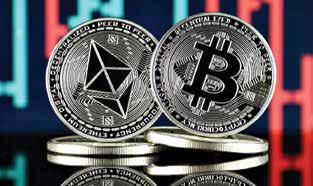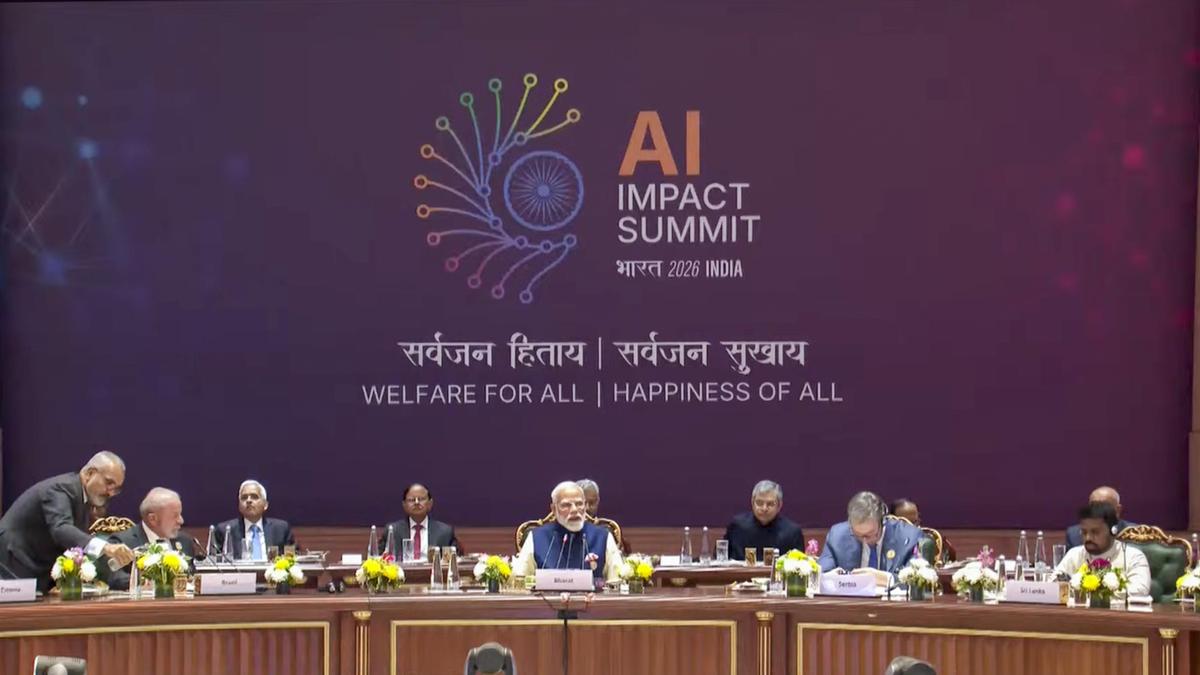What’s in Today’s Article?
- Why in News?
- About the G20 Roadmap on Crypto Assets
- Key Areas of Focus Outlined by the G20 Roadmap on Crypto Assets
- Implications of the G20 Roadmap on Crypto Assets
- Highlights of the FMCBG Communique
Why in News?
- Finance ministers and central bank governors (FMCBG) from G20 nations adopted a roadmap for regulating crypto assets at their meeting at Marrakesh, Morocco.
- The ministers and central bank governors also decided in their joint communique to take forward key proposals from the New Delhi Leaders Declaration.
About the G20 Roadmap on Crypto Assets:
- The G20 Roadmap on Crypto Assets is a comprehensive strategy for addressing the challenges posed by cryptocurrencies.
- It focuses on regulations rather than an outright ban to prevent crypto assets from destabilising the world economy.
- It has been formulated with inputs from the International Monetary Fund (IMF) and the Financial Stability Board (FSB), both influential bodies in global finance.
Key Areas of Focus Outlined by the G20 Roadmap on Crypto Assets:
- Policy frameworks: The G20 emphasises the need for a clear and consistent policy framework for crypto assets to provide legal and regulatory clarity to businesses and investors operating in this space.
- Global coordination and cooperation: The G20 encourages international collaboration among member nations and beyond to prevent regulatory arbitrage and ensure consistent standards.
- Outreach beyond G20 jurisdictions: Recognising the global reach of crypto assets, it is essential to ensure a unified approach to crypto asset regulation, as developments in one region can impact the entire ecosystem.
- Addressing data gaps: One of the challenges in regulating crypto assets is the lack of comprehensive data. The G20 acknowledges the need to address these data gaps to ensure informed decision-making and risk assessment.
Implications of the G20 Roadmap on Crypto Assets:
- On crypto investors:
- Regulatory clarity in various jurisdictions.
- Market stability can prevent extreme price swings triggered by regulatory uncertainties.
- Mainstream adoption with mainstream financial institutions becoming more comfortable participating in the cryptocurrency space.
- On crypto businesses: Compliance requirements, Global expansion, Innovation and development, etc.
- On governments and regulators:
- Regulatory frameworks, which may involve amending existing laws and creating new ones, as seen with the recent trend of national digital currencies.
- Interagency coordination to ensure comprehensive oversight.
- Consumer protection from fraud and unscrupulous actors in the cryptocurrency space, avoiding another FTX-like collapse that affected innumerable people.
- On emerging markets and developing economies (EMDEs):
- Financial inclusion: Crypto assets can provide financial services to unbanked or underbanked populations in EMDEs.
- Economic development: EMDEs may explore opportunities to harness the potential of blockchain and cryptocurrencies for economic development.
- Risk mitigation: The G20 roadmap aims to help these regions strike a balance between innovation and risk management.
Highlights of the FMCBG Communique:
- This was the 4th and final G20 finance leaders meeting under the Indian presidency of G20, with the previous ones held at Washington, Bangalore and Gandhinagar.
- The communique included –
- Measures to strengthen MDBs,
- Advancement of financial inclusion through DPIs (Digital Public Infrastructure),
- Roadmap for crypto asset regulations,
- Managing global debt vulnerabilities for low-income countries,
- Financing cities of tomorrow,
- Advancing two pillar solutions on taxation for digital economy, and
- Mobilising climate finance.
- It noted the need for transformative changes required in Multilateral Development Banks (MDBs) operating models and financing capacities to address global challenges.
- The communique suggested an increase in MDBs’ annual spending by $3 trillion by 2030, including $1.8 trillion for additional climate action, and $1.2 trillion for achieving other SDGs.
- The communique also emphasised the importance of addressing debt vulnerabilities in low and middle-income countries in an effective, comprehensive and systematic manner.
Q1) What is the Financial Stability Board (FSB)?
The FSB is an international body (established in 2009) that monitors and makes recommendations about the global financial system. The Board includes all G20 major economies, FSF members, and the European Commission.
Q2) What is cryptocurrency and how does it work?
Cryptocurrency is any form of currency that exists digitally or virtually and uses cryptography to secure transactions. Cryptocurrencies don’t have a central issuing or regulating authority, instead using a decentralized system to record transactions and issue new units.
Source: G20 ministerial for swift implementation of roadmap to deal with crypto | LM
Last updated on February, 2026
→ UPSC Notification 2026 is now out on the official website at upsconline.nic.in.
→ UPSC IFoS Notification 2026 is now out on the official website at upsconline.nic.in.
→ UPSC Calendar 2026 has been released.
→ UPSC Final Result 2025 is expected to be released in the second week of April 2026.
→ Check out the latest UPSC Syllabus 2026 here.
→ Join Vajiram & Ravi’s Interview Guidance Programme for expert help to crack your final UPSC stage.
→ UPSC Mains Result 2025 is now out.
→ UPSC Prelims 2026 will be conducted on 24th May, 2026 & UPSC Mains 2026 will be conducted on 21st August 2026.
→ The UPSC Selection Process is of 3 stages-Prelims, Mains and Interview.
→ Prepare effectively with Vajiram & Ravi’s UPSC Prelims Test Series 2026 featuring full-length mock tests, detailed solutions, and performance analysis.
→ Enroll in Vajiram & Ravi’s UPSC Mains Test Series 2026 for structured answer writing practice, expert evaluation, and exam-oriented feedback.
→ Join Vajiram & Ravi’s Best UPSC Mentorship Program for personalized guidance, strategy planning, and one-to-one support from experienced mentors.
→ Check UPSC Marksheet 2024 Here.
→ UPSC Toppers List 2024 is released now. Shakti Dubey is UPSC AIR 1 2024 Topper.
→ Also check Best UPSC Coaching in India




















